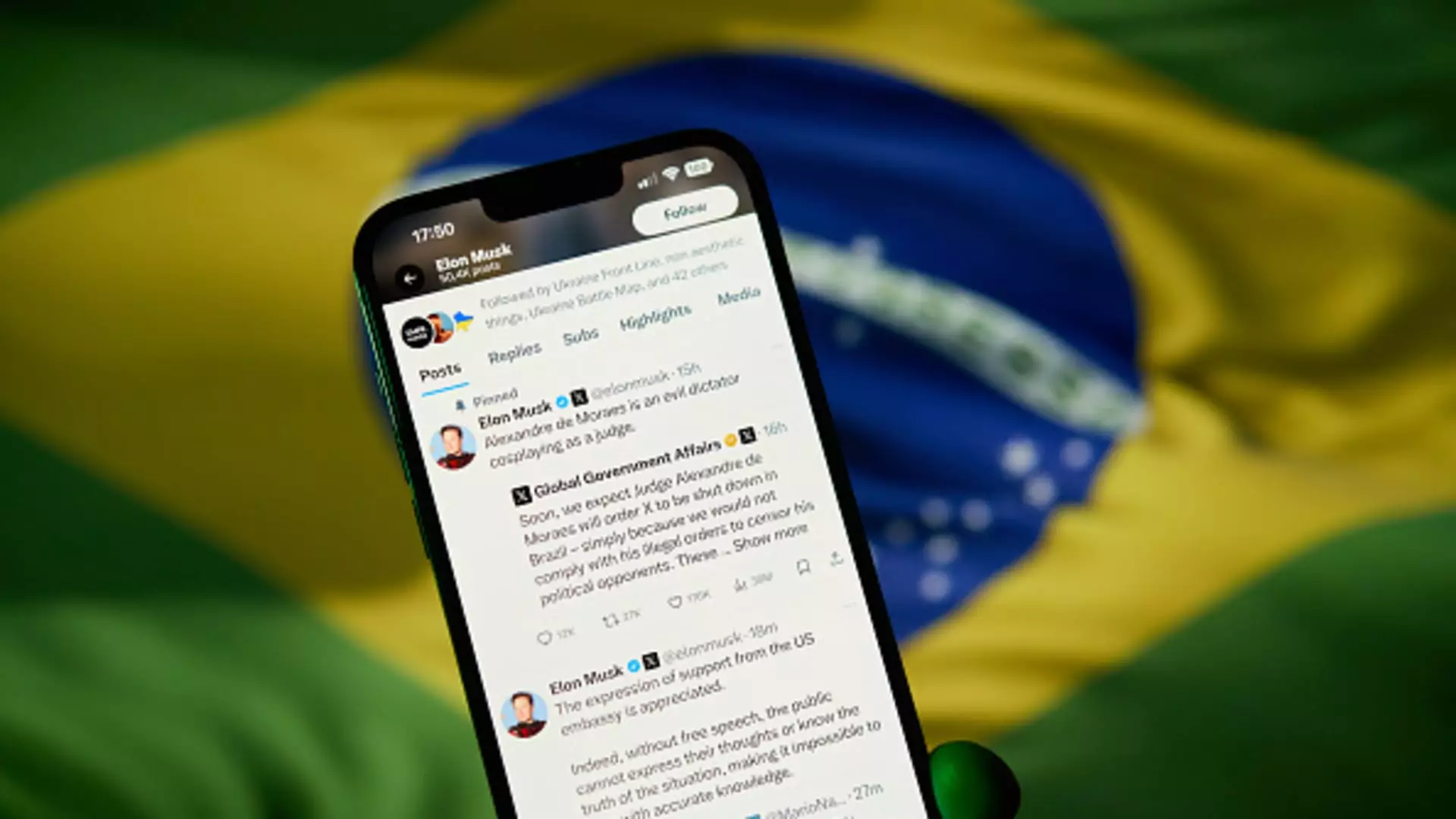In an unprecedented move, Brazil’s federal supreme court has unanimously upheld a suspension order against Elon Musk’s social network X, formerly known as Twitter. This ruling comes amidst escalating tensions between the tech billionaire and Brazilian authorities, raising critical questions about free speech, compliance to local laws, and the ramifications of corporate governance in foreign markets.
Background of the Ruling
The conflict ignited when Alexandre de Moraes, the chief justice of Brazil’s supreme court, mandated that X appoint a legal representative in Brazil. Failure to comply within 24 hours would result in severe penalties, which dampened Musk’s operations in one of the world’s most digitally engaged countries. The court’s decision to block X arose from Musk’s reluctance to remove accounts or postings deemed violations of Brazil’s laws on hate speech and political misinformation. The court not only halted access to X but also took the additional step of freezing financial assets associated with Musk’s Starlink service in Brazil, emphasizing the seriousness of their actions.
The intervention by Brazil’s telecommunications regulator, Anatel, adds another layer to this saga. Anatel instructed local service providers, including Starlink, to implement blocks on X until its management complies fully with judicial orders. However, reports surfaced indicating that Starlink may resist these directives, further fueling the fire of this complex legal battle.
Musk and his entities have characterized these legal actions as illegal and lacking due process, straightforwardly outlining his grievances through vitriolic social media posts. In a blend of bravado and defiance, Musk’s rhetoric intensified as he suggested cutting U.S. foreign aid to Brazil and hinted at retaliatory asset seizures against the Brazilian government. This posture indicates not only Musk’s deep investment in the platform but also his willingness to assert his influence on a global scale.
Moreover, while Musk has branded himself as a champion of free speech, the inconsistency in his practices raises red flags. Although he rebuffed attempts by authorities in other nations to control content under X, his management has sanctioned the removal of critical content in nations like Turkey and India. This contradiction poses profound questions about the real definition of free speech, especially in regions with stricter information regulations.
The exclusion of X from Brazil’s digital landscape has received mixed reactions from the public and political spheres. Some applaud the suspension as a necessary measure to uphold the law, while others perceive it as an overreach, questioning the legitimacy of government intervention in digital communication. At the same time, reports indicate a chunk of Brazilian users are navigating toward other platforms, such as Bluesky, thereby reshaping the social media ecosystem. This transition could significantly alter online discourse and political mobilization strategies in Brazil.
The disruption of access to a major platform like X, especially considered against the social backdrop of a heavy internet user base in Brazil, poses a unique challenge for many citizens. Individuals, accustomed to the rapid exchange of ideas and information on X, now grapple with the limitations imposed by the court, resulting in disquiet and perplexity.
As this episode unfolds, the stakes for Musk and his companies are high. Should they choose to comply with the court’s mandates, it would mean navigating through a labyrinth of regulations and expectations in a foreign jurisdiction. Conversely, their continued resistance could culminate in further sanctions or even the revocation of operating licenses. The tenuous balance between corporate agency and compliance with international laws will undoubtedly be scrutinized as this situation progresses.
The court ruling against Elon Musk’s X in Brazil encapsulates a broader dialogue surrounding corporate governance, freedom of expression, and the role of social media in modern society. As the dust settles on this contentious legal landscape, both Musk and Brazilian authorities must navigate a complex intersection of law, public sentiment, and digital responsibility. The outcome remains uncertain, but one thing is clear: the consequences of this battle will reverberate across borders.

